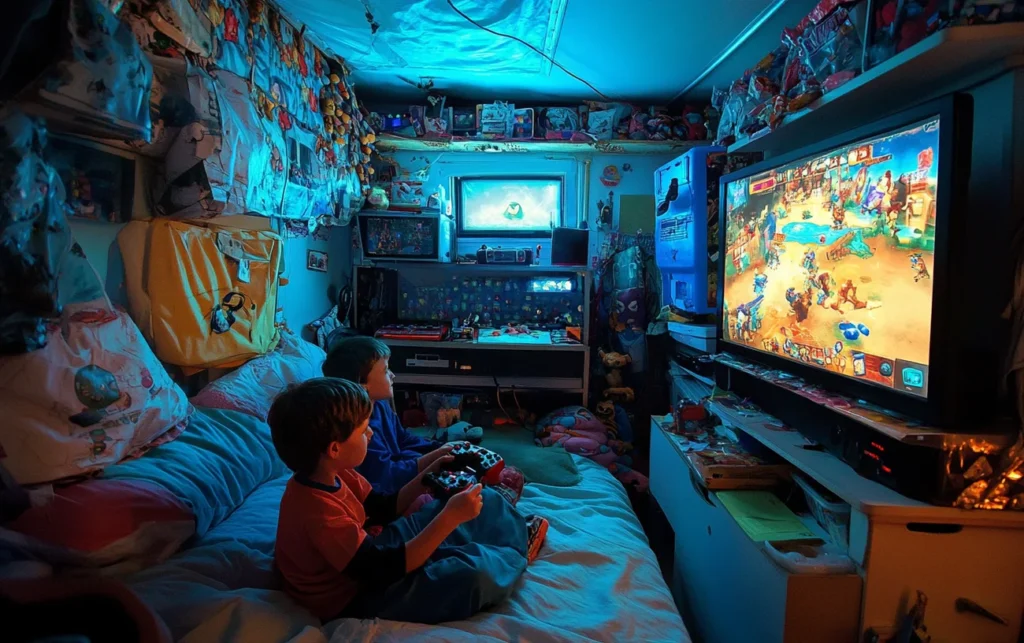A new study suggests that playing video games might have a surprising and positive effect on children’s intelligence. This finding challenges the long-held belief that gaming is detrimental to young minds.
Key Findings from the Study
The research, conducted by scientists from the Netherlands, Germany, and Sweden, linked increased time spent gaming to a small but notable boost in cognitive abilities in children. The study accounted for various factors, such as genetics and socio-economic backgrounds, ensuring a more nuanced understanding of the data.
The study also highlighted that watching TV and using social media appeared to have no significant impact, positive or negative, on children’s intelligence. This nuance is expected to contribute to ongoing debates about appropriate screen time for kids.
Methodology
Researchers analyzed data from 9,855 children aged 9 to 10 in the US as part of the ABCD Study. On average, the children reported daily screen habits as follows:
- 2.5 hours watching TV or online videos,
- 1 hour playing video games,
- 30 minutes socializing online.
Two years later, researchers followed up with over 5,000 of these children to assess their cognitive development. The results revealed that kids who spent more time playing video games experienced an average increase of 2.5 IQ points compared to the typical cognitive improvement expected over the same period.
This IQ boost was measured through tests assessing:
- Reading comprehension
- Visual-spatial processing
- Memory, flexible thinking, and self-control
The Impact of Gaming on Intelligence
The study supports the idea that intelligence is not fixed at birth and can be shaped by environmental factors, including screen time. Neuroscientist Torkel Klingberg from Sweden’s Karolinska Institute emphasized that playing video games appears to enhance cognitive abilities rather than impair them.
Broader Context and Limitations
The findings are consistent with other studies linking video games to cognitive benefits. However, earlier studies often had limitations such as small sample sizes and a lack of consideration for genetic and socio-economic variables. The researchers of this study sought to minimize these issues.
Nevertheless, the study did not explore the potential effects of screen time on other areas, such as:
- Physical activity
- Sleep patterns
- Well-being
- School performance
What’s Next?
Further research is needed to better understand how different types of video games affect intelligence and to explore the broader impacts of screen behavior on children’s development. The study team plans to investigate the interplay between environmental factors, screen time, and brain development in childhood.
A New Perspective on Screen Time
This research challenges negative assumptions about video games and offers evidence that gaming may play a role in boosting cognitive abilities in children. While more studies are required, this finding could influence how parents and educators approach screen time in the future.

